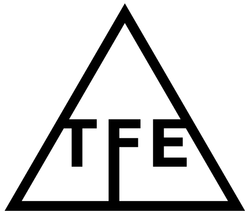|
Over the past few months, I’ve had several conversations with athletes and personal training clients alike around nutrition. With both beach season and race season just around the corner, everyone is asking about how to create the right nutrition plan. So, what is the ‘right nutrition plan’? That’s a complicated topic, and it’s different for everyone.
But HOW we create a plan can actually be fairly straightforward for both endurance athletes and those simply looking to tighten up their diet. While there are numerous aspects to consider, we can break down most of these into three important factors or questions to ask regarding any new approach to nutrition: I’ve written many posts over the years on nutrition and one of main questions I get is regarding breakfast. I am asked about once a week, ‘What, if anything, should I eat for breakfast when I workout early in the morning?” Well, the answer isn't as simple as it may seem as it really depends on lots of factors, including workout type, intensity, duration, and food tolerability. There are many approaches to how we ‘break (our) fast’, with all ends of the spectrum represented when it comes to this question. Some swear by fasted workouts, others absolutely have to eat a solid breakfast before getting into it, others just grab what they can. Most of us fall somewhere in between these extremes.
So let's address what actually happens when we sleep, when we eat, and when we exercise. It's hard to stress enough how important fueling is for endurance events. This includes every day nutrition, training days, and race day. Many times it’s tempting to go out and run poorly fueled, rationalizing that “it’s only a 2 hour bike ride'' or “I don’t need to eat anything for a long run as I’m going slow”. I also see variations of these two poorly informed thought processes: “I’m not trying to win the race, just finish, so I don’t need to pay attention to all that nutrition stuff”, or the worst of the bunch, “I’m trying to lose a few pounds so I’m not going to eat prior or during my workout”.
All of these are wrong- for all sorts of reasons. Usually when a personal trainer, coach, or fitness expert starts talking about nutrition, our eyes glaze over as we conjure images in our mind of exhausting meal prep, weighing our food, and force feeding ourselves bland, ‘healthy food’. I myself have been guilty of droning on and on with clients about macros, carbohydrate periodization, and the pitfalls of fad diets. What I’ve come to find is that most people want a few simple ‘go to’s’ in the kitchen. Simple, tasty, healthy meal options that work for them and their families.
So, in the spirit of summer, I want to share with you my top 3 summertime healthy favorites: an appetizer, main dish, and dessert. If I had to choose one topic as the most common source of client questions, it would have to be nutrition. It seems we are always looking for the fastest way to achieve our health and fitness goals- and nutrition plays a huge part in achieving them. Some people want to just lose weight; others want to gain weight. There are some looking for championship-level race performances; others just want to finish a 5k. Whatever your goal, what you eat plays a significant role in your progress.
July is the middle of the race season. As you might expect, I’ve recently had numerous conversations with clients about race nutrition. Everyone wants to know, “What should I eat before and during a race.” Many times, that question is followed up with a personal experience involving cramping, GI issues, bonking, or other nutrition-related breakdowns. Nutrition is a critical element in endurance events- if you’ve ever got it wrong, you certainly know what it means to have your nutrition off. When nutrition and hydration is on point, athletes enjoy sustained energy throughout their event, with limited if any stomach issues. Yet so many fail to get this critical piece right.
So, what SHOULD you eat when undertaking an endurance event? There is no perfect solution- with multiple factors to consider, what works for one may not work for another. Yet there are a few basic tips that can be extremely helpful to ensuring a positive race experience. Here are 6 things you can do to master your race nutrition and crush your next race: I just returned from a long Thanksgiving Holiday, replete with an overabundance of long flights, friends and family, and of course FOOD. Even for me, it was tough to keep up a healthy nutrition regimen. Speaking of nutrition, the’ holiday calorie carousel’ is starting to spin. Work parties, family dinners, holiday happy hours, and sweet treats can pose a serious threat to our waistlines. In fact, most Americans gain 1-2 lbs over the Holiday season. That may not sound like a lot, until you factor in 1-2 lbs EVERY holiday season- for LIFE! And remember, 1-2 lbs is an average- there are many that put on far more than just a few pounds. Regardless of where you fall in the range, no one wants to add on any extra around the middle.
Recently, I was asked to facilitate a nutrition Q and A with a group of eager fitness enthusiasts looking to understand nutrition basics. With all the fad diets gimmicks, and nutrition myths out there, how to we make sure what fact and what is fiction? Do you make your food decisions based on proven fact, or what is popular today, and out of date tomorrow?
I've put together a few bullet points to help steer you in the right direction. While this isn't a full list, it's a great start to moving in the right direction. |

